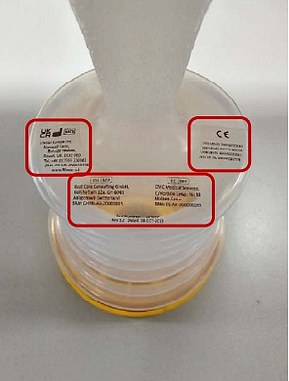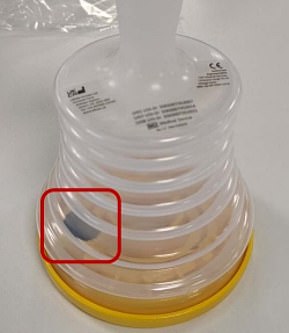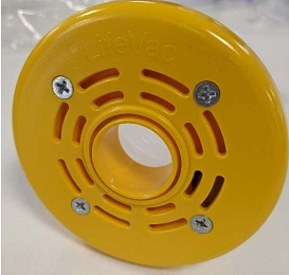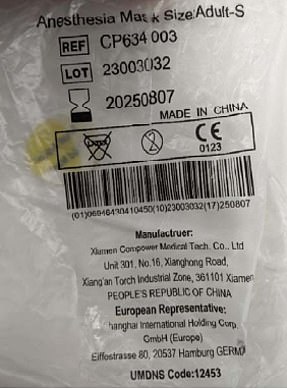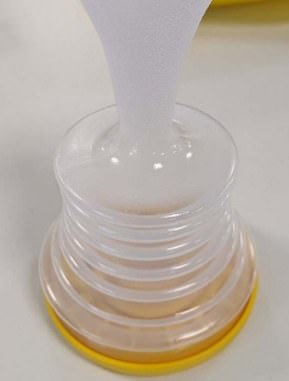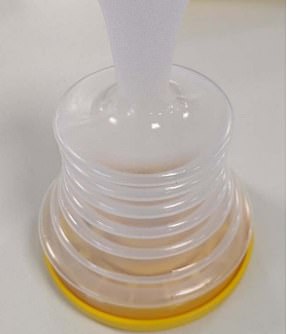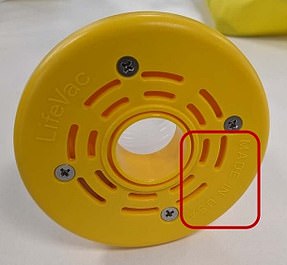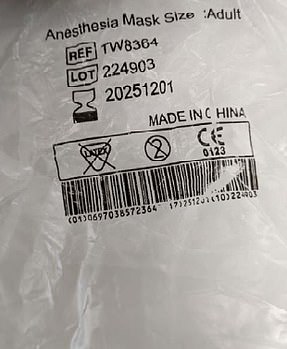Table of Contents
- MHRA warns unbranded anti-choking devices could ‘make choking incidents worse’
- The manufacturer usually sells them for around £60, but counterfeit devices sell for £15.
<!–
<!–
<!– <!–
<!–
<!–
<!–
Dangerous counterfeit anti-choking devices are being sold in the UK for as little as £15.
Regulators warned today that the devices, marketed as lifesavers, could prove deadly.
Bosses at the Medicines and Healthcare products Regulatory Agency (MHRA), which monitors the safety of medicines and medical equipment in the UK, are urging the public not to buy fake or unbranded versions of the devices because they pose a “significant risk.” “.
It is estimated that more than 10,000 fraudulent anti-choking devices have been purchased in the UK on marketplaces such as Amazon and eBay.
The devices work by using air pressure to suction out the item blocking the person’s airway.
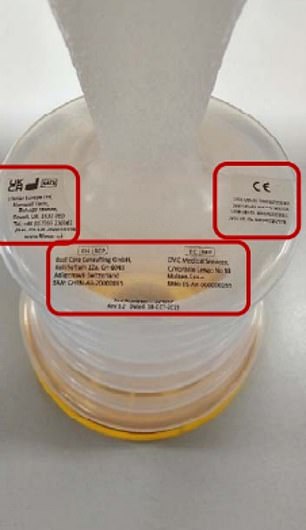
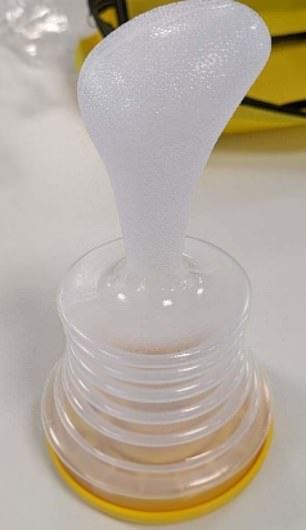

It is estimated that the public has purchased more than 10,000 counterfeit anti-choking devices in the past two years based on listings found on online marketplaces such as Amazon and eBay and dropshipping websites (the image on the left shows a genuine product). Typically sold for around £60 from the manufacturer, counterfeit devices made in China sell for as little as £15 on eBay (the image on the right shows a fake)
Currently only LifeVac and Dechoker are registered with the MHRA. Both have a valid UKCA or CE mark.
Health chiefs say they should only be used after basic life support protocols have been tried and failed.
The fake ones can look almost identical.
None of the anti-choking devices registered with the MHRA are manufactured in China. However, some claim to be genuine.
Regulators say the devices could stop working in a life-threatening situation and could make the situation worse by pushing obstructions further down the airway.
The MHRA is urging people purchasing anti-choking devices online to be “vigilant” and ensure these products are purchased from reputable sellers.
Buyers are also warned to be wary of websites that use fake reviews to promote their product and should also check that the manufacturer of the device is registered with the MHRA via the publicly accessible database.
Dr Alison Cave, MHRA chief safety officer, said: “Patient safety is our top priority.
‘Buying anti-choking devices that do not have a valid UKCA or CE mark increases the risk of receiving a product that does not include proper instructions and is counterfeit or does not meet UK regulatory requirements.
“These products do not meet our strict quality standards and can put your health and safety at significant risk by failing to resolve or even worsening choking incidents.”
Dr Cave added: ‘The MHRA is working with online marketplaces to remove counterfeit and unbranded anti-choking devices from sale.
“Do not use the device if you suspect it is fake.”
“Submit a yellow card report if you have previously used a counterfeit or unbranded device and it did not work, including details of where you purchased the product.”
The MHRA urges people to contact the legal manufacturer, LifeVac, if they are unsure whether their device is genuine or fake.
Asphyxiation occurs when someone’s airway is suddenly blocked, this can be partial or complete, but enough that they cannot breathe properly.
If an adult’s airway is blocked, he or she may be able to clear the obstruction himself.
However, if coughing doesn’t solve the problem, back blows and abdominal thrusts may help. If they don’t work, you should call 999 immediately.
The NHS advises that abdominal thrusts should not be given to babies under one year of age or pregnant women.
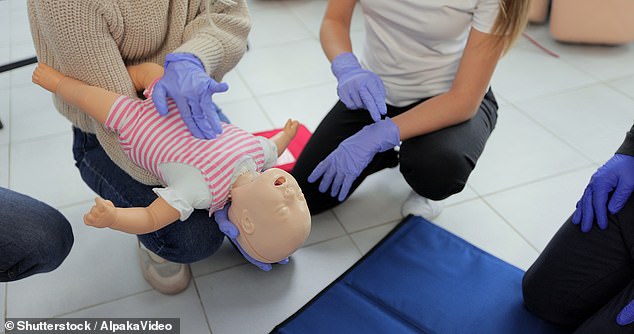

Asphyxiation occurs when someone’s airway is suddenly blocked, this can be partial or complete, but enough that they cannot breathe properly.


